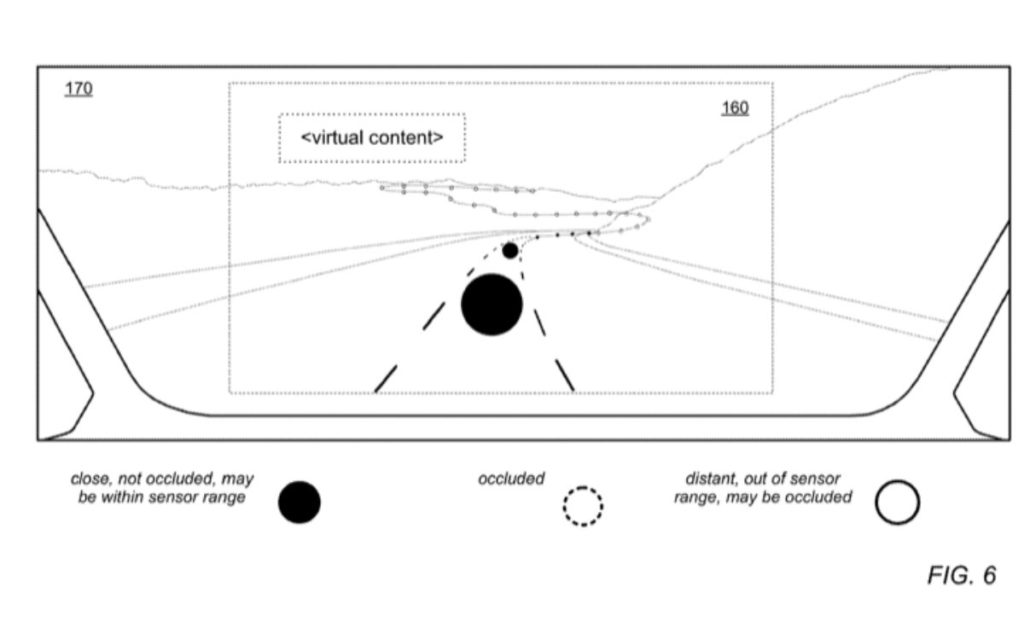Roll on, Apple Car rumors. Apple has filed for a patent (number 20210166490) for “adaptive vehicle augmented reality display using stereoscopic imagery.” It’s for a safety feature.
What are remote sensing technologies?
Remote sensing technologies provide different systems with info about the environment outside a car. For example, objects in the path of a car may be detected. Also, light ranging and detection (LiDAR) can provide high resolution environmental data, such as depth maps. These may indicate the proximity of different objects to the LiDAR.
Challenges to remote sensing technologies
Apple says that real-time augmented reality faces a variety of challenges. This is especially true when it’s a primary display technology in a moving vehicle. Plus, the car is likely traveling at various speeds and angles through ever changing environments.
Weather conditions, sunlight, and vehicle kinematics, are just a few of the elements that may impact such a system. Apple says this is especially true since on-board sensors have a fixed range. Plus they often require algorithms for optimizing queries which impact overall quality and response time. The tech giant wants to overcome such limitations if/when an Apple Car actually arrives.
Summary of the patent filing
The summary of the patent filing is this: “An AR system that leverages a pre-generated 3D model of the world to improve rendering of 3D graphics content for AR views of a scene, for example an AR view of the world in front of a moving vehicle. By leveraging the pre-generated 3D model, the AR system may use a variety of techniques to enhance the rendering capabilities of the system.
“The AR system may obtain pre-generated 3D data (e.g., 3D tiles) from a remote source (e.g., cloud-based storage), and may use this pre-generated 3D data (e.g., a combination of 3D mesh, textures, and other geometry information) to augment local data (e.g., a point cloud of data collected by vehicle sensors) to determine much more information about a scene, including information about occluded or distant regions of the scene, than is available from the local data.”
Article provided with permission from AppleWorld.Today

